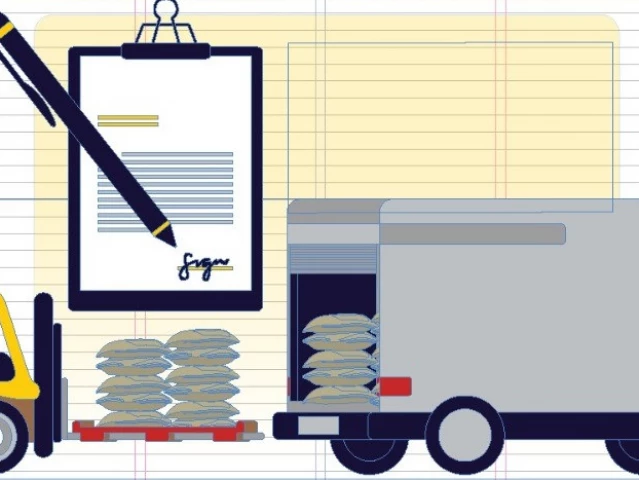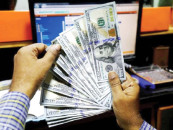Govt signs fresh sugar export deal
Despite IMF objection, new agreement allows exports if stocks exceed 7MMT

The finance ministry on Wednesday finally admitted that the International Monetary Fund (IMF) objected to Pakistan's tax exemptions on sugar imports. Despite this, the government has entered into yet another agreement with the Pakistan Sugar Mills Association (PSMA), allowing future sugar exports if total stocks exceed seven million metric tonnes.
The new agreement, signed on July 14 between the minister for national food security and research and the all-powerful PSMA, aims to persuade millers to keep ex-factory sugar prices between Rs165 and Rs171 per kilogram until October 15. It signals that the government has not learnt from its earlier decision to allow the export of 765,000 metric tonnes, which triggered the current price crisis.
Prime Minister Shehbaz Sharif's government had permitted the export of 765,000 metric tonnes, driving local prices up to Rs200 per kg. In order to stabilise prices, the government allowed tax-free imports of sugar, prompting sharp criticism from the IMF. "The government is discussing the sugar issue with the IMF," said Secretary Finance Imdadullah Bosal at a National Assembly Standing Committee on Finance meeting held Wednesday.
PPP's Syed Naveed Qamar chaired the committee also said that the IMF was displeased with the government's decision to waive taxes on the import of sugar. "There are about 70 benchmarks in the IMF programme, and one of those is that tax exemptions cannot be given," Bosal explained, responding to a question on the nature of the IMF objections.
Sources said that the IMF has plainly asked the government to revoke three statutory regulatory orders issued to waive taxes. The Express Tribune reported on Tuesday that the IMF had reacted to the major breach of the $7 billion programme and conveyed its reservations about import of sugar by waiving taxes in violation of written commitments.
Federal Board of Revenue (FBR) Chairman Rashid Langrial justified the tax waiver by pointing out that total import duties on sugar amounted to 53%, making imports unaffordable. The waiver aimed to cut the import price of sugar by Rs82 per kg.
Initially, the Trading Corporation of Pakistan (TCP) issued a tender to import 300,000 metric tonnes. After IMF's objections, the volume was reduced to 50,000 tonnes, and the bid deadline was extended from July 18 to July 22.
MNA Jawed Hanif criticised the double standard, saying the government used the IMF as an excuse during budget debates but later breached the agreement itself. Bosal denied speculation that the IMF would demand new taxes on salaried individuals in exchange for sugar import waivers.
PPP's Nafisa Shah remarked, "Vested interests are stronger than the IMF."
The sugar export agreement states that "the federal government will allow, for export of sugar stocks exceeding seven million metric tonnes (carryover plus 2025-26 production), after 30 days of the closing of the crushing season 2025-26."
This definition means even imported sugar, if not consumed, could count toward total stock. The stock verification will rely on FBR's track and trace system and be overseen by a four-member committee, one official each from the federal and provincial governments and two from PSMA.
Critically, the agreement includes a price-fixing clause that contradicts Competition Commission of Pakistan (CCP) laws. It states, "The maximum ex-mill price of sugar will be fixed at Rs165 per kg on July 15, 2025, and increased by Rs2 per kg monthly until October 15, 2025."
Before last year's sugar exports, ex-mill prices were below Rs140 per kg. By setting the maximum price at Rs171 per kg, excluding retail profit margins, the government is effectively granting a windfall to millers. Qamar said the government should exit the sugar trade entirely, including ending the licensing regime for new sugar mills.
"There are sufficient stocks in the country," Qamar added. "Importing sugar sends the wrong signals to the market."
He further said the government should only regulate wheat, not sugar. "Sugar remains a highly regulated commodity, while wheat has been deregulated," he said.
Other matters
The committee also reviewed two key private member bills: the Corporate Social Responsibility (CSR) Bill, moved by Nafisa Shah, and the Parliamentary Budget Oversight Bill, proposed by MNA Rana Iradat Sharif Khan.
The CSR bill proposes that companies contribute 1% of net income toward social welfare. However, the secretary finance opposed the bill, claiming it would raise the cost of doing business. Committee members rejected this argument, noting the levy targets net income, not sales.
Nafisa Shah argued that many companies already allocate around 1.5% to CSR voluntarily and support the bill. Despite this, the finance ministry requested a one-month consultation period with stakeholders, which the committee said was unnecessary. Qamar also formed a sub-committee to further evaluate the Parliamentary Budget Oversight Bill, aimed at enhancing budgetary accountability.
While Secretary Bosal expressed reservations against the bill, Qamar stressed that while the oversight bill may challenge the bureaucracy's fiefdoms, the proposed legislation is important for the improvement of the overall system.























COMMENTS
Comments are moderated and generally will be posted if they are on-topic and not abusive.
For more information, please see our Comments FAQ